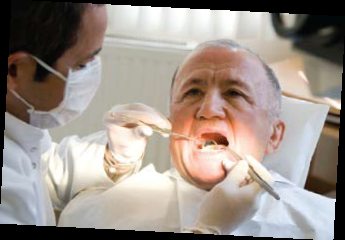Flossing is an integral part of your oral health regimen; however, many people don’t spend enough time flossing their teeth, or they don’t floss at all. By flossing just once a day, you can decrease your risk of gum disease and increase your chances of maintaining good oral health throughout your lifetime. Why should I floss? Brushing cleans the tops and sides of your teeth, but flossing cleans in between them where your toothbrush can’t reach. Dental floss removes plaque and debris that adhere to teeth and gums; it also helps to polish tooth surfaces and control bad breath. How....
What is cosmetic dentistry and how can it improve my smile? Your dentist can perform a variety of cosmetic procedures to improve your smile—from subtle changes to major repairs. There are many techniques and options to treat teeth that are discolored, chipped, misshapen, or missing. Your dentist can reshape your teeth, close spaces, restore worn teeth, or alter the length of your teeth. Common procedures include teeth whitening, bonding, caps, crowns, veneers, and reshaping and contouring. What is teeth whitening? Teeth whitening is a common and popular chemical process used to lighten teeth. Some people get their teeth whitened to....

Patients diagnosed with cancer have special needs when it comes to their dental treatment. It is important for patients and their dentists to discuss dental treatment, its unique aspects during cancer treatment, and what effects cancer and cancer treatment can have on the patient's mouth. What effect does cancer have on the mouth? Cancer, no matter where in the body it occurs, can affect teeth, gums, salivary glands, and other tissues in the mouth. How does cancer treatment affect the mouth? Chemotherapy and radiation treatments can affect the mouth, causing side effects that may include: Pain in the mouth and....